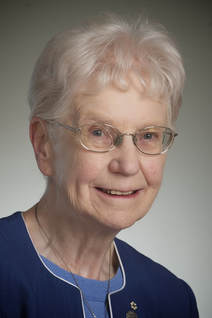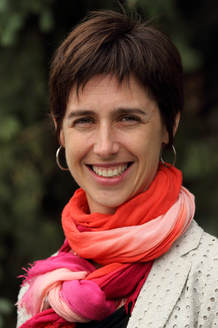Conférenciers principaux
|
Margaret-Ann Armour, Associate Dean of Science, Diversity, University of Alberta
Women into Computing Science: Making it Happen Why is it important to have gender diversity in computing science? What are the reasons why fewer women than men are choosing this profession? We will explore some of the answers to these questions and consider actions which we can take to make change happen. Biography Margaret-Ann Armour was educated at the University of Edinburgh and the University of Alberta and joined the Chemistry Department at the University of Alberta in 1979. Her research was into the handling and disposal of small quantities of hazardous chemical waste. Since 2005, she has been Associate Dean of Science, Diversity. For many years, she has been active in encouraging women to consider careers in the sciences and engineering, co-founding Women in Scholarship, Engineering, Science and Technology, WISEST, at the University of Alberta in 1982. Currently, she is chair of the board of the Canadian Centre for Women in Science, Engineering Trades and Technology, the WinSETT Centre. Dr. Armour has received a number of awards for her work including a Governor General’s Award in Commemoration of the Person’s Case, the Montreal Medal of the Chemical Institute of Canada, being twice named one of the top 100 most powerful women in Canada by the Women’s Executive Network and being inducted as a member of the Order of Canada in 2006. She has 6 honorary degrees. |
|
Joëlle Pineau, Associate Professor and William Dawson Scholar, McGill University
Improving Health-care through AI Artificial Intelligence offers a powerful paradigm for automatically discovering and optimizing sequential treatments for chronic and life-threatening diseases. In particular, we will focus on how data collected in multi-stage sequential trials can be used to automatically generate treatment strategies that are tailored to patient characteristics and time-dependent outcomes. We will also examine promising methods to improve the efficiency of clinical trials through adaptation. Examples will be drawn from several ongoing research projects on developing new treatment strategies for epilepsy and cancer. Biography Joëlle Pineau is an Associate Professor and William Dawson Scholar at McGill University where she co-directs the Reasoning and Learning Lab. Dr. Pineau's research focuses on developing new models and algorithms for planning and learning in complex partially-observable domains. She also works on applying these algorithms to complex problems in robotics, health care, games and conversational agents. She serves on the editorial board of the Journal of Artificial Intelligence Research and the Journal of Machine Learning Research and is currently President of the International Machine Learning Society. She is a Senior Fellow of the Canadian Institute for Advanced Research and in 2016 was named a member of the College of New Scholars, Artists and Scientists by the Royal Society of Canada. Joëlle's homepage |



